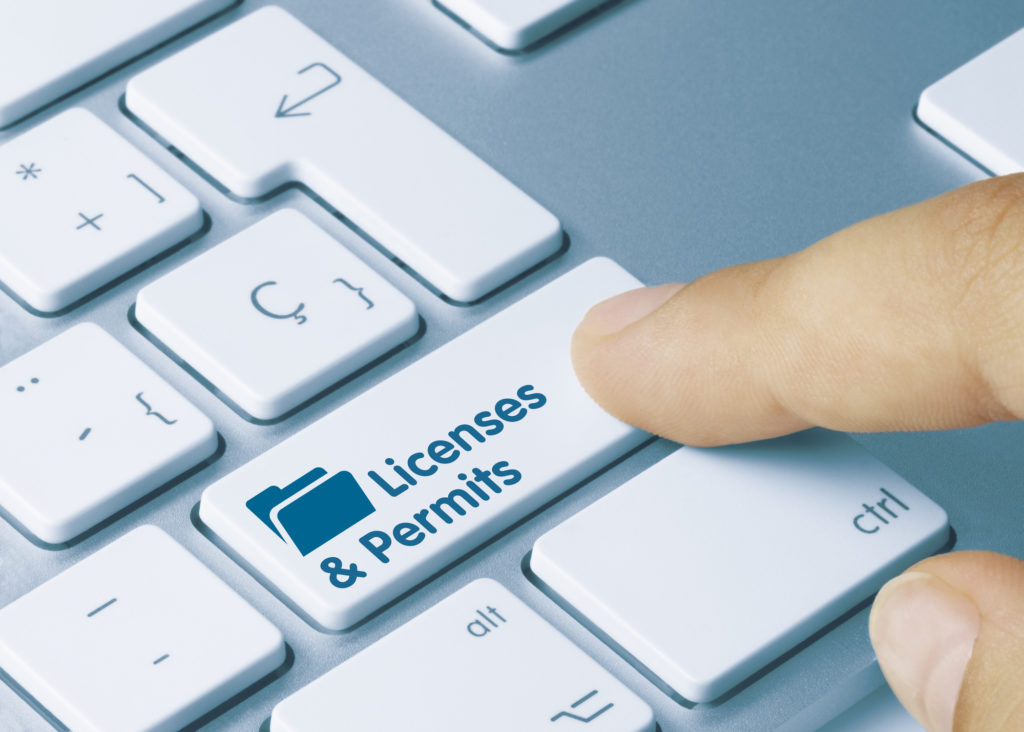 When you go into business, the government is your silent partner in more ways than one. The government takes a chunk of your profits in the form of taxes. The government tells you what you can and cannot do (the rules and regulations applicable to your industry and location). And the government requires that you have certain licenses and permits to operate legally.
When you go into business, the government is your silent partner in more ways than one. The government takes a chunk of your profits in the form of taxes. The government tells you what you can and cannot do (the rules and regulations applicable to your industry and location). And the government requires that you have certain licenses and permits to operate legally.
Overview of licenses and permits
Depending on what your business is about and where you’re located, you may be required to have one or more licenses and/or permits. Licenses and permits are issued by federal, state, and local governments, as well as various authorities and organizations. For example, a license to practice law is issued by the state bar association where the attorney practices.
The terms “licenses” and “permits” are often used interchangeably, and both are issued by the government or some other authority, but they’re slightly different:
- A permit is an official document authorizing you to do something. A permit usually relates to health and safety regulations and tends to be temporary, requiring periodic inspections to renew.
- A license is permission from an authority to own or use something or to carry on a trade or business. A license has more permanent status, such as a license to practice medicine or open a business. But licenses may also require periodic renewals, such as taking continuing education courses to retain a CPA license.
General business licenses and permits
Some business licenses and permits are common to all, regardless of industry or location. For example, you must be authorized to do business in your location. This requires forming your entity (a corporation or limited liability company) in your state or filing a “DBA” (doing business as) for a sole proprietorship or partnership operating under a fictitious name rather than merely the name(s) of the owners. Some independent contractors, such as freelance writers, may not have any registration requirements. But check whether you must obtain a local business license, regardless of your business entity and the fact that you’ve already informed the state (e.g., via incorporation) that you’re operating within its boundaries.
If you’ve formed a business out-of-state, you usually need to obtain a permit (sometimes referred to as a certificate of authority) to engage in business in another state. You may also need to obtain a sales tax certification to collect and remit sales tax on goods and services sold within that state (there are exemptions for small remote sellers).
Want a sign displayed outside your business? You need to have local government approval for that; signage limitations apply.
Specific business licenses and permits
Other licenses and permits may be necessary, depending upon the nature of your business. For example, if you sell food products (e.g., retail, restaurant) or have health-related goods and services (e.g., fitness center), you need a health permit. When you renovate your premises, you likely need a building permit. And, for restaurants, daycare centers, and other businesses that are open to the public, the fire department must issue a permit to allow operations to begin. If you sell alcohol, tobacco, or firearms, you must obtain a special federal license to do so.
You may be required to personally have an occupational license. This applies to professionals (e.g., attorneys, doctors, nurses, CPAs), tradespeople (e.g., plumbers, electricians), and those engaged in various other activities (e.g., hair stylist, private investigators, real estate brokers, collection agents).
Finding your licensing and permit requirements
You can learn more about federal licensing and permit requirements from the SBA. Check with your state for their requirements, helpful links for this may be found through the SBA. Contact your city or town for local licensing and permit requirements.
Final thought
In your startup budget, be sure to include the cost of needed licenses and permits. Allow for the time needed to obtain required permission; getting a liquor license can take quite some time. Also put on your calendar renewal reminders for the future so your licenses and permits don’t lapse.


